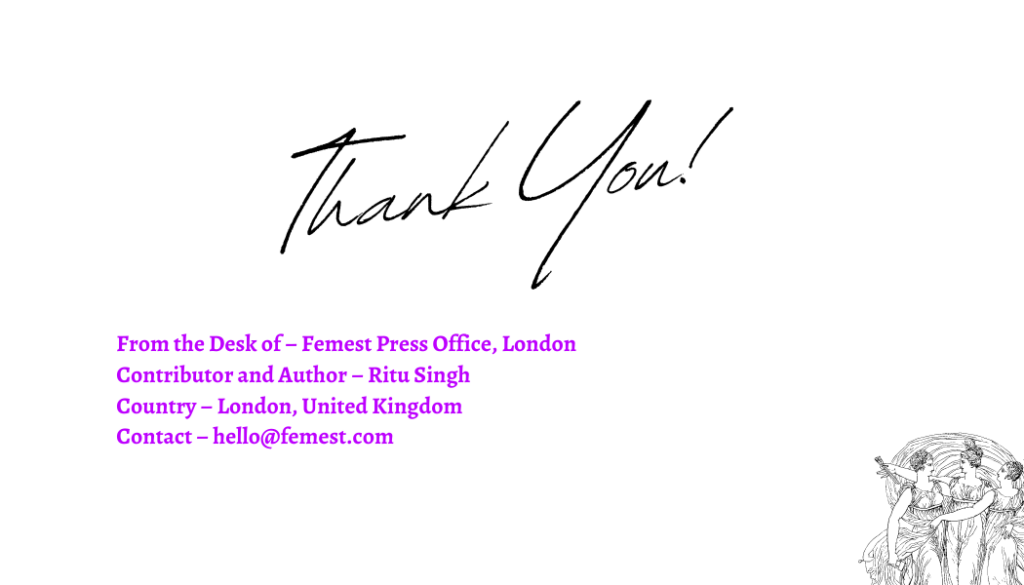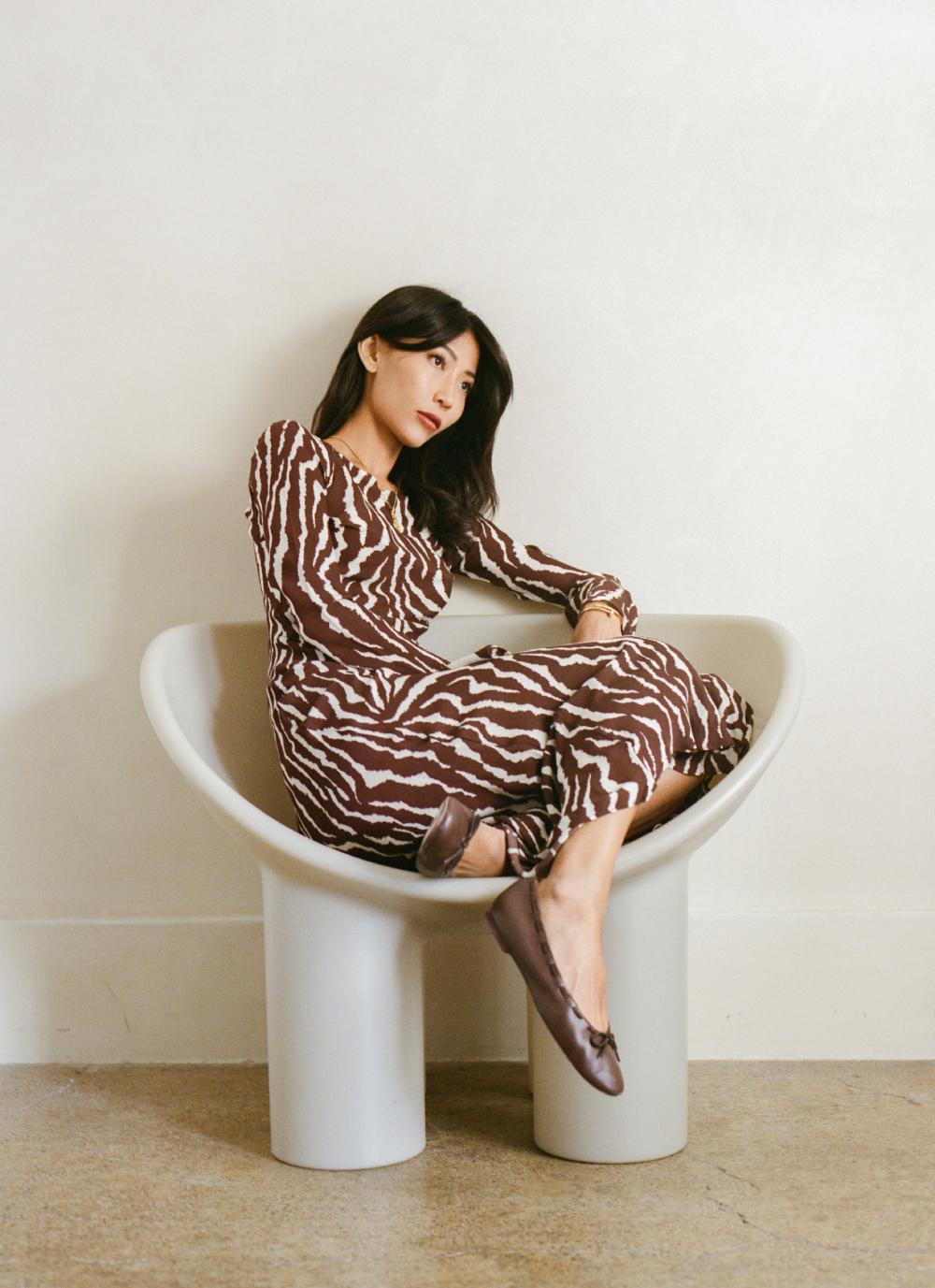Meet Cherry, a passionate perfumer who turned a lockdown curiosity into beautiful, wearable scents. Starting as self-taught and learning from top experts, she mixes memory, stories, and emotion into every fragrance creating perfumes that inspire, move, and redefine modern perfumery.
Cherry, your journey is beautifully layered. When did fragrance shift from passion to a serious pursuit?
I’ve always been fascinated by scent, but ironically, it was during the COVID lockdown that my casual interest deepened into something more serious. Unlike many in the industry who come from a chemistry background or have experience with major fragrance houses, I began my journey in a more unconventional way, primarily through online learning and largely self-guided studies.
After the lockdown was lifted, I enrolled in several courses at the Grasse Institute of Perfumery over the next three years, which helped me build both technical knowledge and connections within the industry. It was there that I was introduced to more people and suppliers, expanding my understanding of the fragrance world.
By a fortunate coincidence, I was introduced to Antoine Lie through Remi Pulverail, the founder of L’Atelier Français des Matières. Since January 2024, I’ve been training privately with Antoine, which has been a transformative step in my development as a perfumery student, as well as the creative director of JOUISSANCE.
You’ve studied at top art institutes. How did that education influence your creative and artistic thinking?
I’ve always seen perfumery as an art form – just as much as fine art or literature. It’s not simply about smelling nice; it’s about emotion, narrative, and meaning-making.
My education in art and art history taught me that every creative discipline has its own system of language. The deeper your understanding and mastery of that language, the more creatively free you become.
It’s a lifelong pursuit. But of course my time at Sotheby’s Institute of Art and Goldsmiths also taught me that no art form can exist outside of its industry, despite its many faults. While it’s admirable to aim for structural change, it’s equally important to understand how to navigate and, at times, work within the system.
It also revealed how different art forms constantly influence and inform one another. I’m particularly drawn to the idea of transposition – borrowing structures or concepts from one medium and reimagining them in another.
People often talk about ‘interdisciplinary’ practices today, but for me, it’s a natural and essential part of the creative process – one that I continually explore in my own work, and one I believe many others care deeply about as well.
Your first perfume line honors bold literary voices. What inspired that connection between scent and literature?
For me, scent and literature complete one another. A book pulls you in slowly, working on your mind and imagination over time, while perfume hits you in an instant – it’s visceral, emotional, sometimes even unconscious. Where words try to describe, scent just calls it forth. And in a world where our attention is constantly pulled in a hundred directions, that immediacy feels powerful.
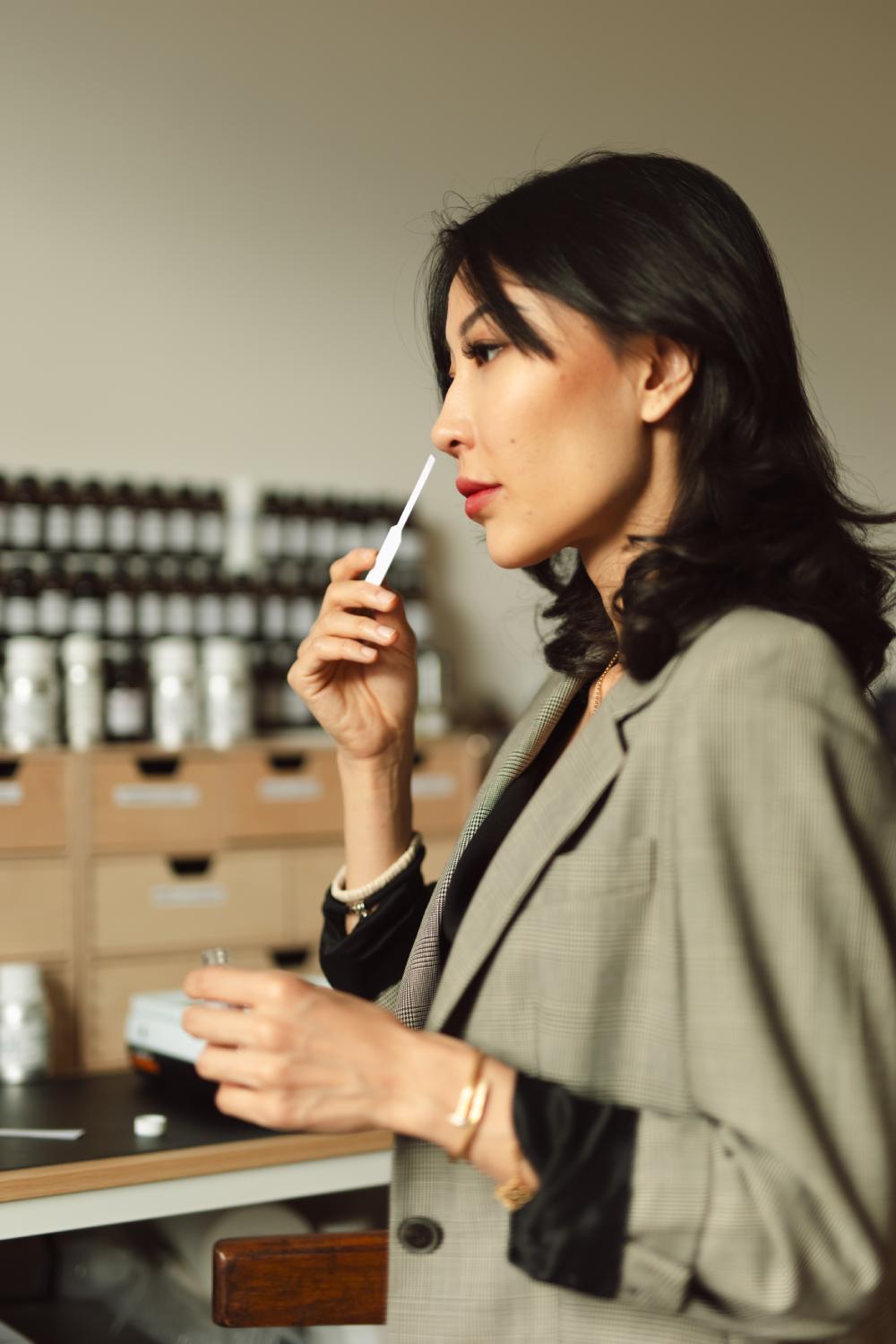 Photo credit – Olivia Cartwright
Photo credit – Olivia Cartwright
Perfume is so personal. How do you capture deep feelings and memories through scent creation?
I think that because scent is so personal, it’s almost impossible to create something that resonates with everyone – our associations are shaped by our own social histories, cultures, and private memories.
That said, I like to anchor my work in the classics. Just as in art history, there’s a shared system of references, a kind of common language, that many people instinctively recognize. Those familiar touchpoints can open the door for deeper, more personal connections.
Learning from Antoine Lie must be powerful. What’s been your most eye-opening lesson so far?
I’ve learned so much from Antoine, especially through the exercises he’s given me – like reconstructing classics purely by smelling them. That trial-and-error process has been invaluable; it’s taught me more about how materials interact and function within a structure than anything I could have picked up from reading or lectures.
It’s also fascinating to uncover why certain fragrances became classics – not just because they were inventive compositions, but because of how they resonated with the cultural and historical moment.
What I value most, though, is that learning with Antoine is never didactic. He never dictates rules or defines materials for me outright. Instead, he designs exercises that guide me toward my own discoveries and personal reference points for remembering scents. That approach is incredibly liberating.
It’s given me the confidence to trust my intuition in a craft that can feel almost mystifying at first – especially when there are scarcely authoritative, visual measurements to lean on.
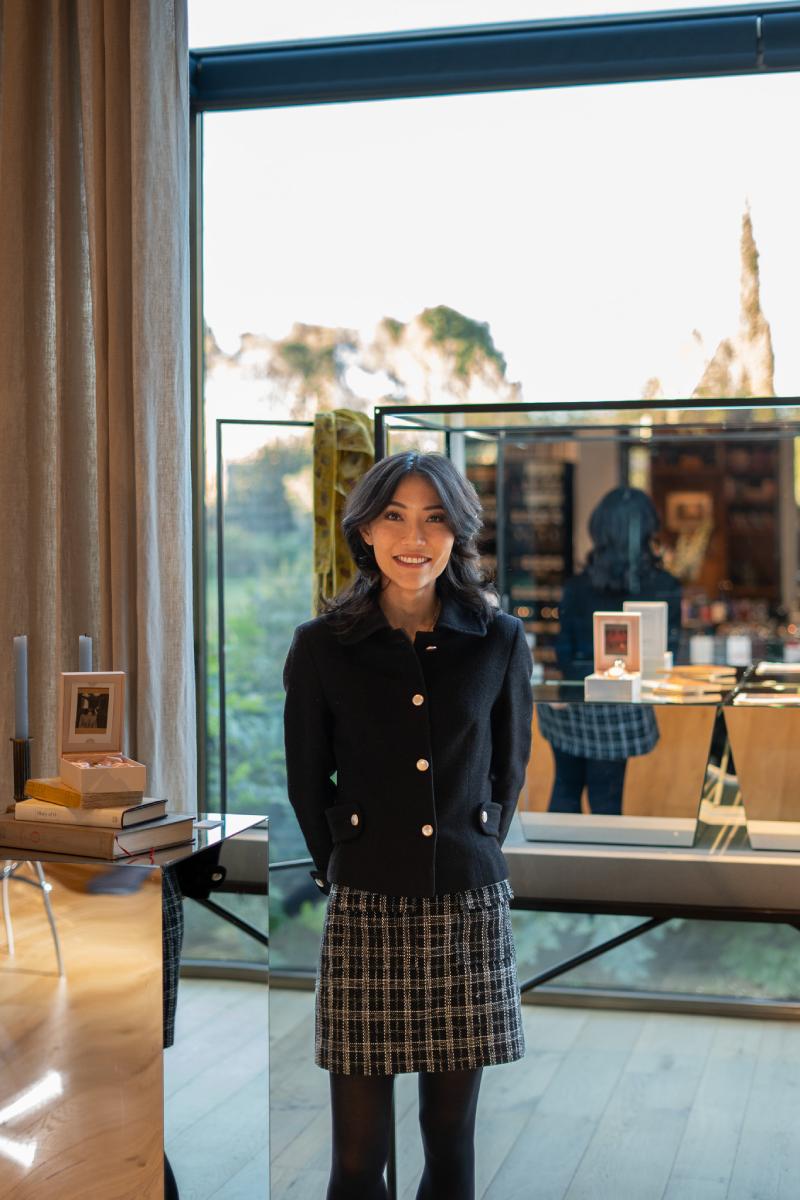
You’re both a storyteller and founder. How do you balance creative freedom with running a business?
It’s a constant balancing act one I have to keep recalibrating. Running a business is so outward-facing and social, while my creative process depends on solitude and stillness. Since launching the brand, I’ve been pulled in every direction coffees, events, trade shows and I’ve missed those stretches of unstructured time where I can simply be idle.
For me, the only way to protect that creative time is to schedule it deliberately. I block it out in my calendar weeks in advance, treating it as non-negotiable.
Those are the days when I can simply sit at my desk smelling things, experimenting, reading, watching films, or even doing nothing at all. It’s usually in those seemingly non-productive moments that my best ideas have arrived.
JOUISSANCE feels like wearable art. Was that always your intention when you began creating perfumes?
For me, art is about awakening something deeper within us – a way to connect with a heightened sense of being. The perfumes I admire most do exactly that. So yes, fromthe very beginning, my aspiration has been to create fragrances that move people on an emotional level.
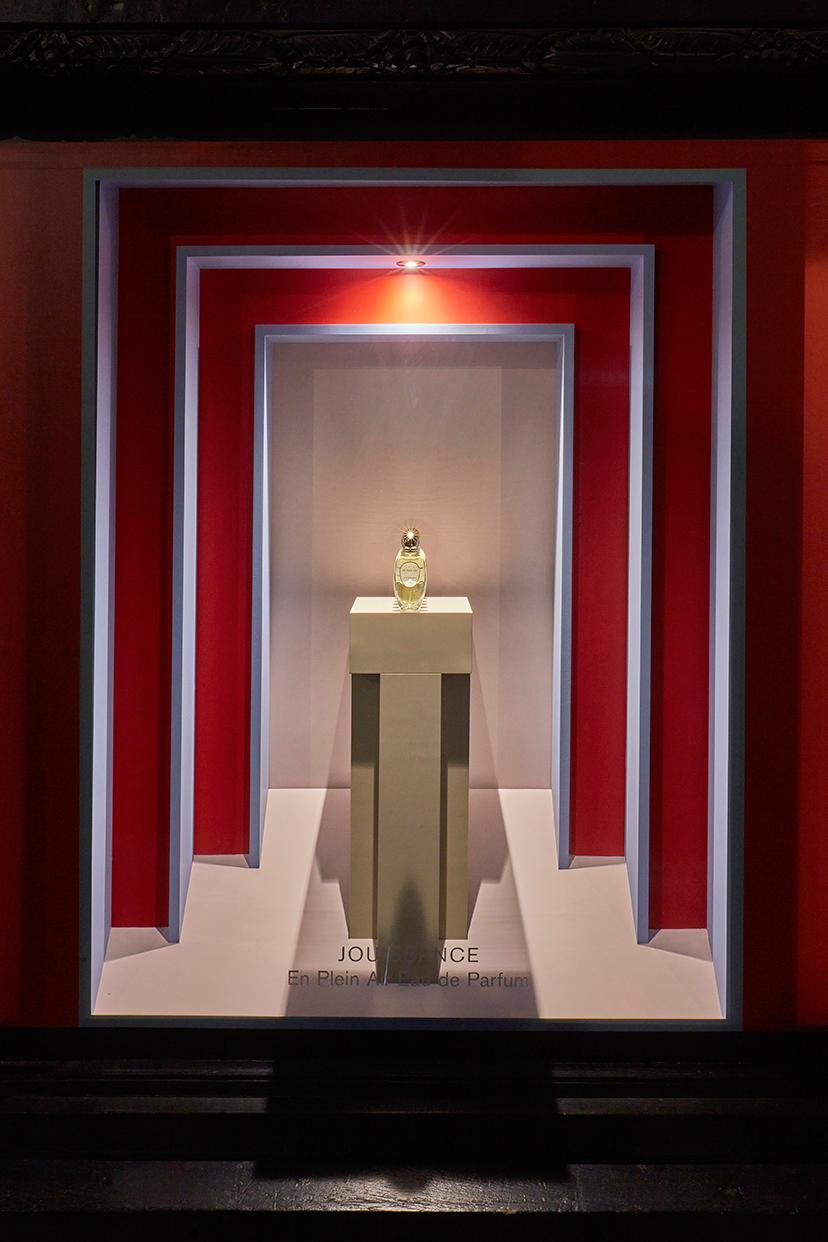
You’re involved in leading art organizations. How does being a patron shape your own creative process?
Being involved with inspiring organizations like Studio Voltaire and the ICA keeps me deeply connected to contemporary artistic dialogues and some of the most exciting creative practices happening today.
Through these communities, I’ve had the privilege of meeting incredibly inspiring artists and writers who continuously broaden my perspective.
I believe it’s vital to support creative practices at their earliest, most experimental stages. Being immersed in that boldness and dynamic energy inspires me to take risks and remain provocative in my own work.
You split your time across cities. How do London, Paris, and Grasse each inspire your ideas?
London is definitely where I call home – a city buzzing with vibrant energy and a wonderfully diverse, fascinating mix of people. Though sometimes, keeping up with the pace can be a bit exhausting.
Paris, for me, is always a feast for the senses. Visiting its museums, the iconic Librairie Galignani, and the countless charming cafés offers an experience unlike anywhere else. Since I began training with Antoine in January 2024, I’ve been coming to Paris almost every other month, which has deepened my connection to the city.
I haven’t spent as much time in Grasse yet, but visiting in the summer, when the fields are in full bloom and the South of France is alive with art openings, is always a true pleasure.
Other cities that have become meaningful to me include New York, LA, and Athens, and I’m hoping to spend more time in these places over the coming year.
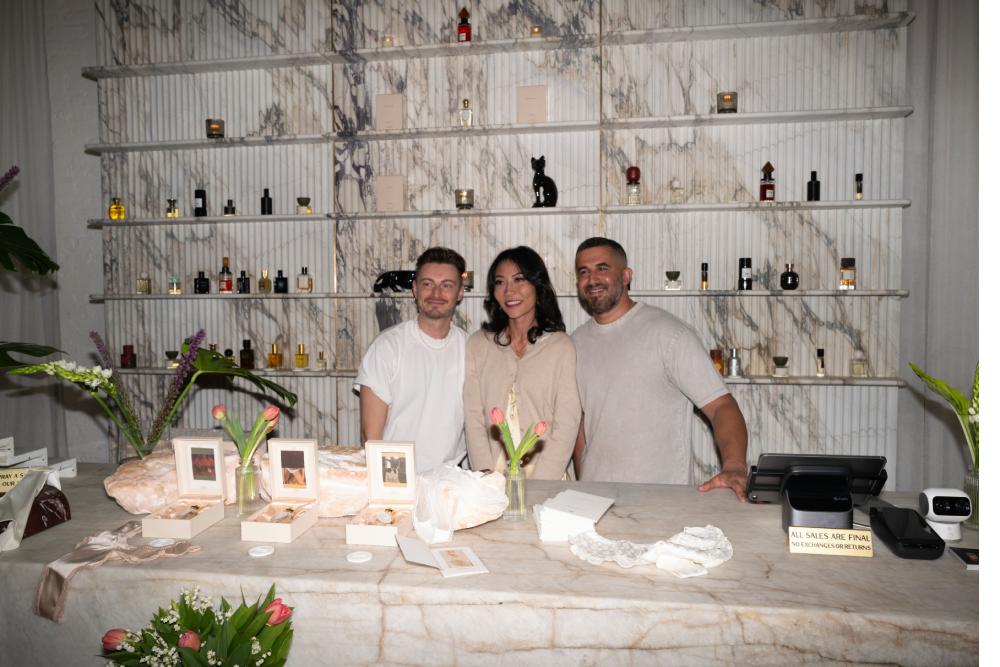
Perfume is invisible yet emotional. What kind of story do you want each scent to tell?
I want my perfumes to evoke complex feelings and memories that words alone can’t capture alone. They tell stories of passion, vulnerability, and the hidden layers of identity. Ultimately, I hope each fragrance becomes a personal journey for whoever wears it – a way to connect with their own emotions and imagination in a way that feels both highly specific and universal.
Your work blends strength and softness. What does modern femininity mean to you personally?
To me, modern femininity is about embracing complexity – the balance between strength and softness, vulnerability and resilience. It’s rejecting one-dimensional stereotypes and instead celebrating the full spectrum of emotions, power, and grace that women embody. Modern femininity means owning your voice and your story unapologetically, while also honoring empathy and connection. It’s fluid, dynamic, and deeply personal.
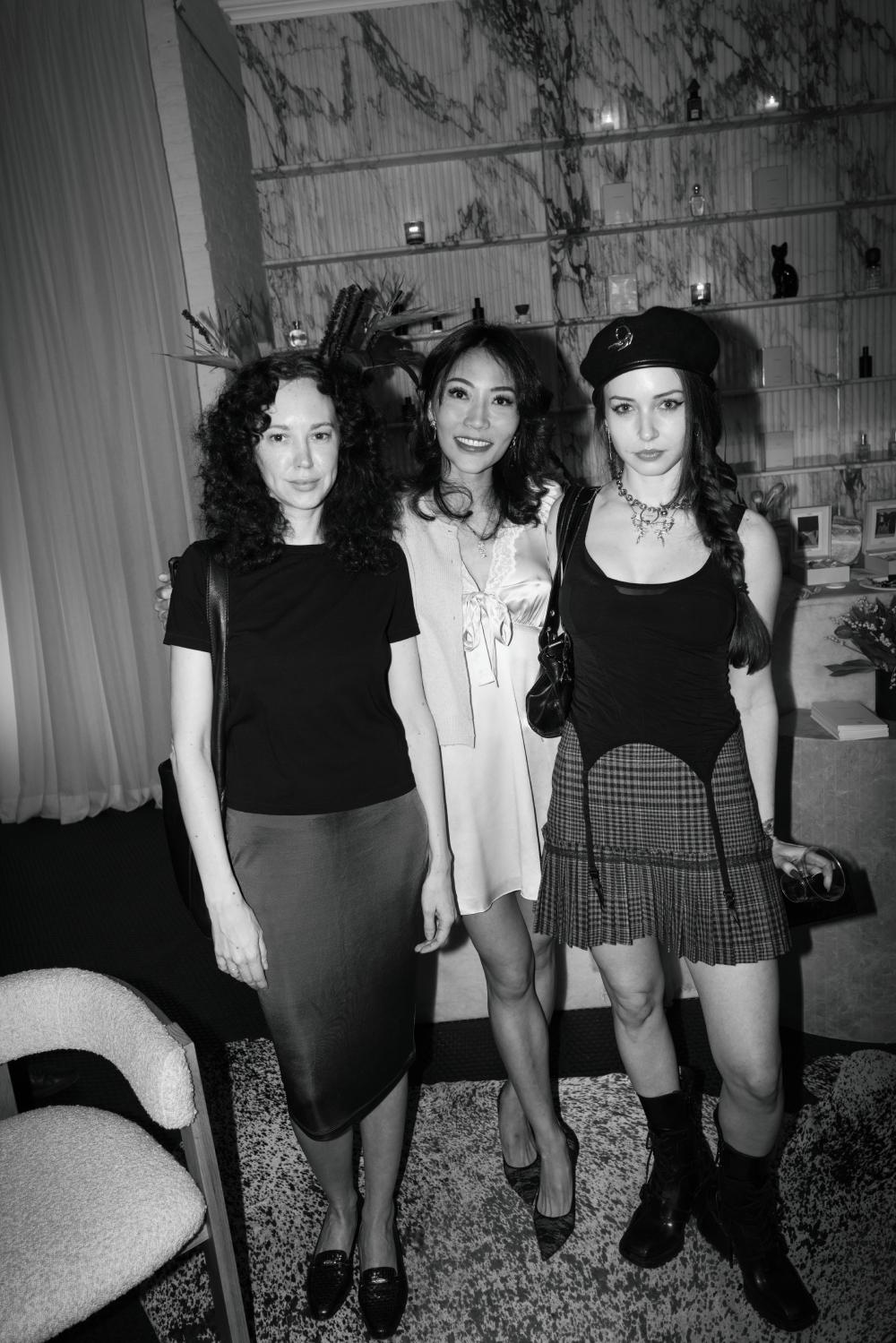
What’s next for JOUISSANCE and what future dreams are you most passionate about bringing to life?
Our second collection has been a true labour of love – my team and I have poured so much heart and thought into it. We’re really excited for it to be a meaningful and delightful surprise for our community, with plans to launch in spring 2026.
In the meantime, starting this October, we’re bringing back our rare bookshop with thoughtful, thematic curations and new releases every season.
